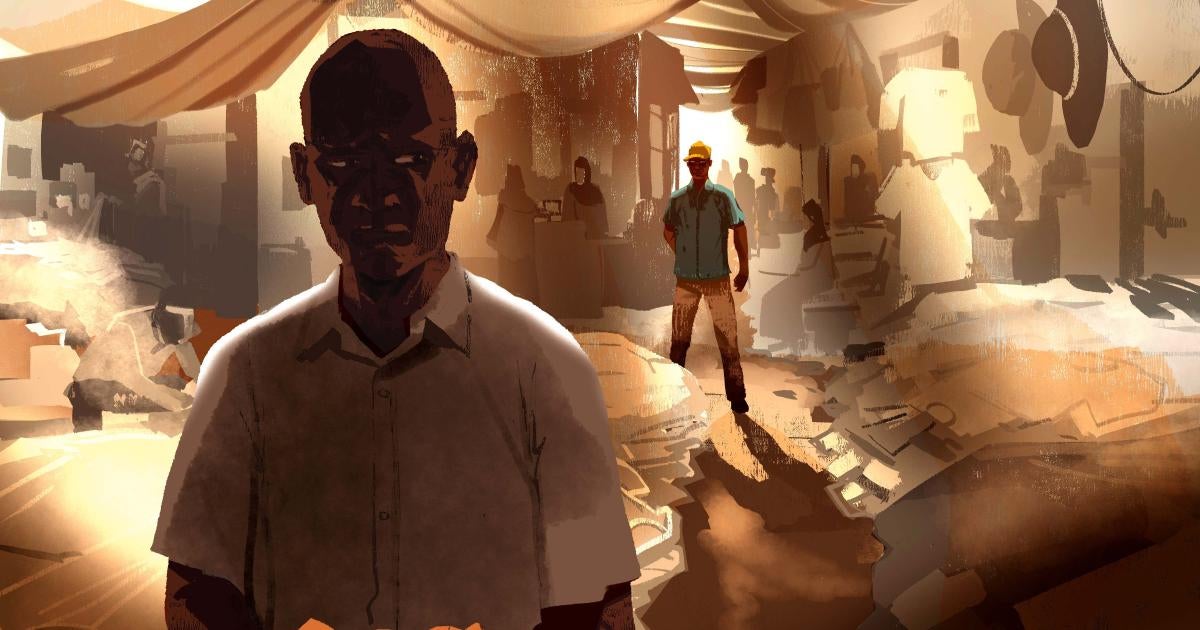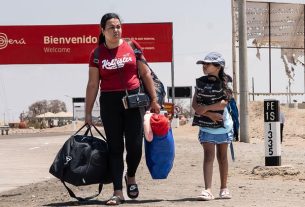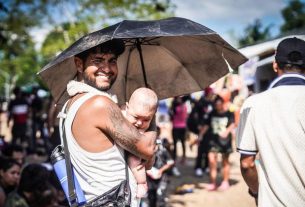- Rwandan authorities and their proxies are using violence, judicial mechanisms, and intimidation to try to silence criticism from Rwandans living around the world.
- Rwanda’s targeting of Rwandans abroad, including in the UK, underlines Rwanda’s contempt for human rights norms enshrined in the international protection system.
- The UK should abandon its asylum transfer deal with Rwanda and take action to enhance the protection of Rwandan residents and refugees in the UK.
(London) – Rwandan authorities and their proxies are using violence, judicial mechanisms, and intimidation to try to silence criticism from Rwandans living around the world, Human Rights Watch said in a report published today. The abuses, which have fostered a climate of fear and self-censorship, are being brought to light as the United Kingdom government is at the Supreme Court appealing the judgment that its plan to send asylum seekers to Rwanda is unlawful.
In the 115-page report, “‘Join Us or Die’: Rwanda’s Extraterritorial Repression,” Human Rights Watch documents a wide array of tactics that, when used together, form a global ecosystem of repression aimed at muzzling dissenting voices and intimidating actual, perceived, or potential critics, including Rwandans who have sought international protection. The combination of physical violence, including killings and enforced disappearances, surveillance, misuse of law enforcement – both domestic and international – abuses against relatives in Rwanda, and damaging people’s reputation through online harassment constitute clear efforts to isolate potential critics.
“The Human Rights Watch findings highlight that Rwanda is not a country the UK should rely upon to uphold international standards or the rule of law when it comes to asylum seekers,” said Yasmine Ahmed, UK director for Human Rights Watch. “The British government’s plan is doing untold damage to the UK’s international reputation as a country that claims to stand up for human rights.”
In April 2022, the UK and Rwandan governments announced the signing of a new Asylum Partnership Arrangement, under which the UK plans to expel to Rwanda people seeking asylum in the UK. The UK Court of Appeal in June found the asylum deal unlawful because asylum seekers sent to Rwanda risk being sent back to their home countries, where they may face mistreatment.
Human Rights Watch found that Rwandans living in the UK, who had been warned about threats against them, have had to take extreme measures for their security. Some people interviewed, including in the UK, said that their relatives in Rwanda had been pressured to silence the exiled relatives’ criticism. Several Rwandans asked Human Rights Watch not to reveal their identity, and some expressed concern that the UK-Rwanda Asylum Partnership Arrangement would mean that their safety may no longer be a priority for the UK government.
Faustin Rukundo, a former senior member of a Rwandan opposition group now living in exile in the UK, said that his family has repeatedly had to change phones because of threatening phone calls and messages. “We are always changing phones, and they are always finding the number,” he said. His wife, Violette Uwamahoro, said that her friends have also received threats: “Anyone close to me is threatened,” she said. “Here, the [Rwandan] embassy goes through friends.”
On October 2, 2023, the UK Foreign, Commonwealth and Development Office (FCDO), on behalf of the Foreign Secretary and Home Secretary, responded to a Human Rights Watch’s request for information but declined to comment on the cases documented in the report and the concerns raised by Rwandans interviewed. It said more broadly that “attempts by foreign governments to coerce, intimidate, harass or harm their critics overseas, undermining democracy and the rule of law, are unacceptable.”
Yet, Rwandan authorities have openly politicized refugee rights and threatened to stop hosting certain refugees in Rwanda. In 2018, Rwandan security forces opened fire and killed at least 12 refugees who were protesting a cut in food rations. On October 1, 2023, secretly recorded comments by Rwanda’s high commissioner to the UK, Johnston Busingye, in response to a question about the police shooting and killing of the refugees, illustrated the Rwandan authorities’ contempt for the loss of life: “Yes, it might have happened, but so what?” The high commissioner also appeared reluctant to rule out that refugees sent from the UK would never be returned to their home countries.
Since April 2022, the UK has shied away from criticizing Rwanda’s domestic and extraterritorial human rights abuse. The UK’s reluctance to condemn human rights abuses in Rwanda has drawn criticism from across the political spectrum, including from former foreign minister Justine Greening, who said the asylum deal risks “downgrading” UK foreign policy.
Human Rights Watch interviewed over 150 people across the globe about the tactics the Rwandan authorities and their proxies use to target Rwandans abroad. Human Rights Watch documented abuse against Rwandans living in Australia, Belgium, Canada, France, Kenya, Mozambique, South Africa, Tanzania, Uganda, the United Kingdom, and the United States, as well as their relatives in Rwanda.
Human Rights Watch documented over a dozen killings, kidnappings or attempted kidnappings, enforced disappearances, and physical attacks targeting Rwandans living abroad. The Rwandan government sought to use global police cooperation, including Interpol Red Notices, judicial mechanisms, and extradition requests to seek deportations of critics or dissidents back to Rwanda.
People interviewed reported that, in many cases, their relatives in Rwanda had been targets of arbitrary detention, torture, harassment, and restrictions on movements to pressure, punish, or silence their family members living abroad. The moves aim to preserve Rwanda’s coveted image, quash dissent that could emerge from abroad, and reinforce a chilling message of the price to be paid to critics within the country.
Human Rights Watch found that Rwandan embassy officials, members of the Rwandan Community Abroad, a global network of diaspora associations tied to the Ministry of Foreign Affairs and International Cooperation, or others tied to them, have monitored and pressured Rwandans abroad to join them, return to Rwanda, or stop criticizing the government.
Several people living in exile, including genocide survivors, said they had been attacked online for criticizing the governing party. Some said that their family members had been forced to denounce them on pro-government YouTube channels.
In targeting actual or perceived dissidents abroad and their relatives, Rwandan authorities have violated an array of rights including to life, physical security and liberty, freedom from torture, freedom of movement, privacy, freedoms of expression and association, and the right to a fair trial.
“Given Rwanda’s brazen targeting of its refugees, asylum seekers, and other diaspora members around the world, the UK government cannot, in good faith, argue that Rwanda is a safe third country to which to send asylum seekers,” Ahmed said. “The UK should abandon its cruel asylum plan once and for all.”
For a Q&A on the report, see: https://www.hrw.org/news/2023/10/10/rwandas-repression-across-borders



